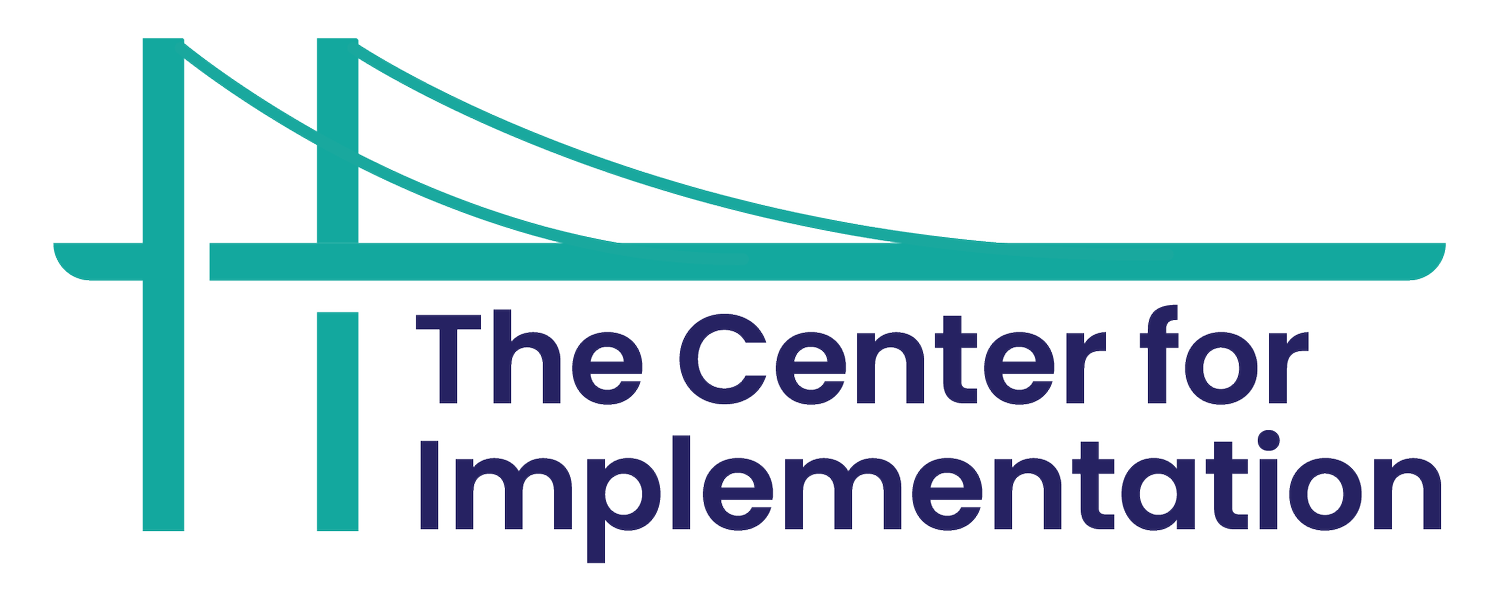Sustainability: What Is It? Why Is It Important? How Are Readiness, Context, and Sustainability Related?
By Dr. Julia E. Moore, Executive Director
5-min read
When implementing a new initiative, program, or innovation, it's essential to consider sustainability early and often. Unfortunately, talking about sustainability can evoke many emotions – many people don’t feel ready to talk about sustainability early on which can cause tension, or are not on the same page about what sustainability means in the context of their work which can lead to confusion. This is because there are many components to consider when talking about sustainability. Let’s unpack the 5 components of sustainability – this is a great place to start the conversation.
Core components of sustainability
The five components that make up sustainability include: 1) sustaining the WHATs; 2) sustaining the HOWs or change strategies; 3) sustaining outcomes; 4) adaptations to the WHATs, HOWs, or measurement of the outcomes; and 5) contextual factors that impact our ability to sustain changes.
Components of sustainability - The WHAT: Continuing to do the Thing
The first component of sustainability is the WHAT, what you want people to do differently. We love to use the 7 Ps to define the WHATs (i.e., is it a program, practice, procedure, policy, product, pill, or principle). It's crucial to assess whether people are continuing to do the WHAT over time. You should also consider whether people have made adaptations to that WHAT over time and whether those adaptations are still aligned with the original purpose and outcomes they were intended to reach.
Components of sustainability - the HOWs: change strategies
The second component of sustainability is the HOWs or change strategies that support people to do the WHAT. It's essential to evaluate whether people are continuing to use those change strategies over time and whether they have made adaptations to them. For example, you might use education, reminders, and champions to support the changes you want to see. Are you still using those strategies, and have you made any adaptations to them?
Components of sustainability – Sustaining outcomes
The third component of sustainability is sustaining outcomes. It's critical to measure the outcomes you want to see over time. By doing so, you can ensure that you are still achieving the intended results and that what you are implementing still meets people’s needs. As people transition from implementation to sustainability, it’s common that funding to measure outcomes decreases or disappears, which means you might need to make adaptations to how outcomes are measured.
Contextual factors that affect sustainability
Sustainability does not exist in a vacuum. There are many contextual factors that impact our ability to sustain changes over time. The most obvious factor is funding, but there are also other factors to consider, such as leadership support, staffing changes, and competing priorities.
We often use the Program Sustainability Assessment tool and associated factors to unpack the contextual factors that affect sustainability. This visual illustrates an adapted version of those factors, adding in factors like “critical events” and “system readiness”. Looking for another sustainability planning tool? This article highlights our 3 most commonly used tools, including the NHS Sustainability Model, the Long-Term Success Tool, and the Program Sustainability Assessent Tool.
Sustainability is a critical consideration when implementing any new program or innovation. To sustain changes over time, it's essential to consider the five components of sustainability, including the WHAT, the HOWs or change strategies, sustaining outcomes, adaptations to each of those, and contextual factors that impact our ability to sustain changes. By considering sustainability early and often, you can ensure that the changes you make are long-lasting and continue to deliver benefits over time.
This article was featured in our monthly Implementation in Action bulletin! Want to receive our next issue? Subscribe here.



